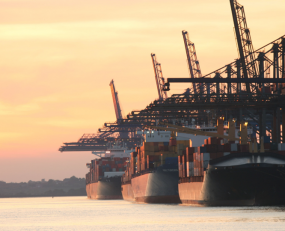
The Group of 7 nations or ‘G7’ have agreed to attempt to create a structure of minimum corporate tax levels.
Motivated largely by concern about the tax policies of predominantly US tech and pharmaceutical companies, the finance ministers of the G7 have attempted to agree to a minimum corporate tax rate by committing to “reaching an equitable solution on the allocation of taxing rights, with market countries awarded taxing rights on at least 20% of profit exceeding a 10% margin for the largest and most profitable multinational enterprises. We will provide for appropriate coordination between the application of the new international tax rules and the removal of all Digital Services Taxes, and other relevant similar measures, on all companies. We also commit to a global minimum tax of at least 15% on a country-by-country basis.”
Whether this will work or how it will be implemented is still unclear, however, it does have possible implications for the logistics sector in general and the shipping industry in particular. The concept of being domiciled ‘off-shore’ has been attractive to the shipping sector for many years typified by the concept of ‘flags of convenience’. The driver for this was both regulatory as well for tax reduction purposes.
The London law firm Watson Farley & Williams commented a few days ago that “if applied to shipping, the plans would cut through close to a hundred years of tax policy. Profits would no longer be subject to tax only in the place of effective management of a shipping company. No longer could countries use their tax systems to support their ambitions to be “maritime nations”, develop their own maritime clusters, bolster their ship registries, build up maritime expertise across a range of services and train a steady stream of new recruits for their maritime industry.”
It may be that shipping negotiates opt-outs to the policy as it has done in the past over competition law or fuel regulations. Or it could represent an opportunity for major economies with a taste for regulation and economic control to assert themselves more strongly over the sector, alternatively, it could trigger restructuring as subsidies are phased out. Either way a change in the approach towards global tax structures are likely to pose a threat to the status quo in shipping.
Source: Transport Intelligence, June 8, 2021
Author: Thomas Cullen